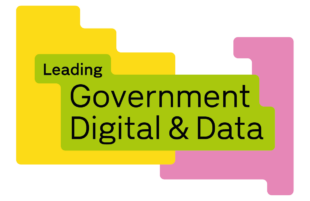
Based in Cardiff, Companies House is an executive agency of the Department for Business, Energy and Industrial Strategy (BEIS). We incorporate and dissolve limited companies, register company information and make that information available to the public.
We are committed to being a ‘digital first’ organisation, putting user needs at the heart of everything we do. You can see this demonstrated through our successful Companies House Service, which provides company data for free. We have been working through a programme of transformation to ensure we are equipped to achieve our digital aspirations.
As well as satisfying our users, it’s essential to us to ensure that our own people have rich and rewarding working lives. We are determined to make Companies House the destination of choice in our region for public sector Digital, Data and Technology (DDaT) professionals.
It’s not just about providing a pleasant work environment and conditions. We want all our people to feel that they have flexibility and control in how they approach their work, that they enjoy a good work/life balance, and that they can grow and feel fulfilled in their careers.
One of the ways we track how employees feel about working here is through the People Survey, a questionnaire that all civil servants can complete about their organisation. The data we get from this survey gives us an overall ‘engagement score’, which we can monitor over time.
In the past three years, we have reduced staff turnover in our DDaT teams from 30% to 5%, and scored higher in our People Survey. This shows just how much progress we have made in motivating our workforce, and making this a really satisfying place to work and develop.
A positive work culture
Alongside our digital transformation, we have been working to transform Companies House as a workplace, building a culture in line with our values: 'Excellent standards and behaviours', 'Working as one' and 'Every achievement counts'.
Everyone has a role to play in delivering valuable products and services. We’re all encouraged to challenge how things are done, suggesting new and different approaches. Digital colleagues can dedicate 10% innovation time – half a day each week – to developing their skills, working on personal or group projects and exploring new technologies to enhance their own capabilities and those of the business.
We want to make sure that everyone at Companies House feels valued, and given the space and the encouragement they need to grow and develop. Our employees benefit from flexible working and mobile working, and there is an abundance of communities, practice groups and support mechanisms.
We’ve also been adopting DevOps approaches in how we deliver our services: we automate processes where possible, so that staff can concentrate on solving more complex, rewarding issues, communicating with each other and innovating.
Supporting career progression
One of the key benefits we have delivered is clarity around career progression. One of the tools we have used in our transformation process is the Digital, Data and Technology (DDaT) Profession Capability Framework. It’s the single structure of DDaT job roles and career paths in the Civil Service. It’s designed to help government organisations recruit consistently and build capability, and it provides civil servants with clear career progression information.
One traditional way to progress in a government organisation has been to transition from being a practitioner to a strategist/people manager. But it doesn’t suit everyone. We’ve provided a structure for career progression that allows people to keep growing and enhancing their digital and technical skills, and doing roles which are centred on these skills.
Another transformative consequence of implementing the DDaT Capability Framework (and the associated pay approach, which rewards developing and demonstrating increased specialist expertise) has been that we have been able to hire permanent staff instead of relying on contractors in some areas.
We were able to show that we could save £4 million over 3 years: this meant that we could, in effect, use some of these savings to match market salaries for business-critical DDaT roles. Our pay structures are competitive, encouraging staff to stay with us in the long term.
Putting this framework into place has involved mapping all of the DDaT roles in our organisation against the DDaT Profession Capability Framework and assessing staff against the skills defined at each practitioner level, to determine where they are on their career paths.
This has all taken time and work, but the result has been a more attractive and fulfilling place to work for DDaT professionals in Cardiff, where staff can stay for longer and feel more motivated by their work.
The outcomes
Since beginning this process of transformation, there’s been an impressive decrease in staff turnover, and also improved scores in our People Survey. Our staff area, the Digital Directorate, achieved a 69% engagement score, compared to 58% in 2016. This shows that our staff feel much happier and more valued at work.
We worked closely with the DDaT Profession Team at GDS to support the introduction of the DDaT Capability Framework, and capability-based pay. David Dilley, who heads the team, said:
This is exactly the sort of outcome we hoped for when introducing these initiatives across the DDaT Profession. We developed the capability-based approach to pay to support retention of civil servants, encouraging in-post development of specialist expertise that can be rewarded without colleagues having to 'jump ship' to negotiate a pay rise. The increase in associated people survey engagement scores is something we've seen in other organisations, too, and is a great result.
Career progression has also changed drastically. In the past, a software developer became a manager, moving into the non-technical space with no opportunity to become a better software developer. Now, you can become a senior developer and a lead developer, or you can step across to architecture or into delivery management. There are many more options for people to develop their skills – and their careers – in different ways.
With all these benefits, including clearer pathways in skills development and career progression, and more competitive pay, we encourage our great staff to stay longer.
To find out more about what it’s like to work here, look at the Companies House pages on GOV.UK and read the Companies House blog.
